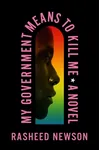Picture a storyteller who spun a vibrant tale of queer Black resilience in the heart of the 1980s AIDS crisis—meet Rasheed Newson! This trailblazing author and television writer has carved a unique path, blending sharp historical fiction with raw, personal narratives. From his debut novel to his work on hit TV dramas, Newson’s voice amplifies the intersections of race, sexuality, and identity with humor and heart.
The Making of Rasheed Newson
Born on May 27, 1979, in Indianapolis, Indiana, Rasheed Newson grew up as the eldest of three in a wealthy Black family. His early love for poetry and fiction—think Nikki Giovanni and Kurt Vonnegut—sparked a creative fire. At Georgetown University, he penned movie reviews for The Hoya while volunteering at Grandma’s House, a group home for HIV+ foster children. In 2002, Newson moved to Los Angeles, diving into the entertainment industry with grit, working every role from production assistant to assistant to a network president.
Rasheed Newson’s Unforgettable Stories
Newson’s debut novel, My Government Means to Kill Me, is a fierce, fast-paced coming-of-age story set in 1980s New York. Following Trey, a young, gay Black man navigating the AIDS epidemic, the book blends vibrant humor with unflinching activism. Its historical depth—featuring cameos from Bayard Rustin and Larry Kramer—earned it a spot as a New York Times Notable Book of 2022 and a Lambda Literary Award finalist. Newson’s television work, alongside writing partner T.J. Brady, shines just as bright. As co-showrunner of Bel-Air, he reimagines the Fresh Prince with modern flair. His credits also include Narcos, The Chi, and Lie to Me, where his outsider perspective challenges dominant narratives. Newson’s style is bold yet tender, weaving resilience, sass, and marginalized voices into every story.
Why Rasheed Newson Matters
Rasheed Newson’s work is a beacon for queer Black stories, often sidelined in mainstream media. His novel and TV projects don’t just entertain—they educate, shedding light on the AIDS crisis and systemic inequities with wit and urgency. As a board member for organizations like the Bayard Rustin Center for Social Justice, Newson’s advocacy amplifies his art, inspiring readers and viewers to confront history and embrace identity unapologetically.
- Born: May 27, 1979, Indianapolis, Indiana
- Key Works: My Government Means to Kill Me, Bel-Air, Narcos, The Chi
- Awards: 2022 Lambda Literary Award Finalist for Gay Fiction
Snag My Government Means to Kill Me and dive into Rasheed Newson’s vibrant, boundary-pushing world!
